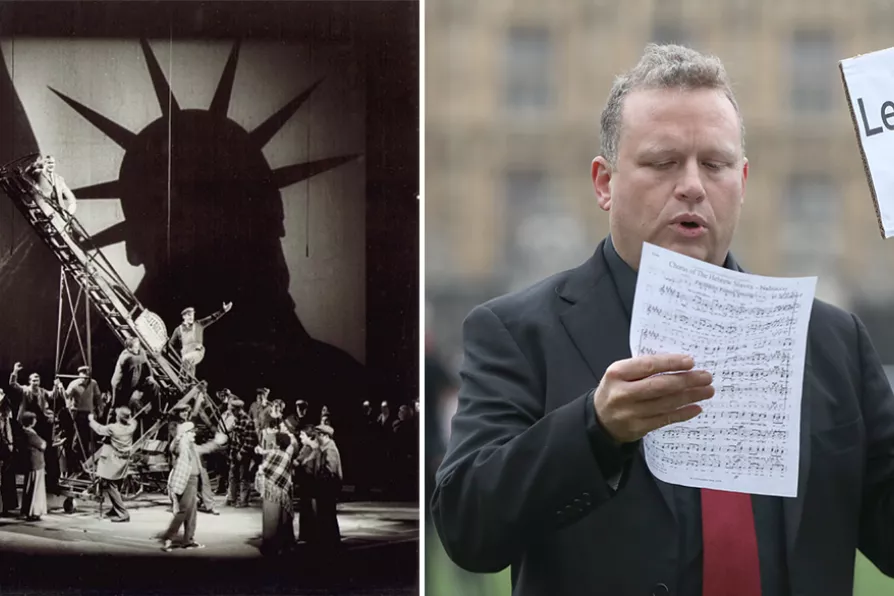TONY BURKE speaks to Gambian kora player SUNTOU SUSSO

 (L) A scene from Alan Bush's opera Joe Hill, Deutsche Staatsoper, Berlin, September 1970; (R) Opera singers perform during a protest calling for more funding for the performing arts in Parliament Square, London, Oct 30, 2020
[Courtesy of the Alan Bush Trust]
(L) A scene from Alan Bush's opera Joe Hill, Deutsche Staatsoper, Berlin, September 1970; (R) Opera singers perform during a protest calling for more funding for the performing arts in Parliament Square, London, Oct 30, 2020
[Courtesy of the Alan Bush Trust]
READERS will be aware of my deep frustration and anger at how the Arts Council of England – and many corners of the cultural sector – have failed the arts in the name of “anti-elitism.”
The new Let’s Create strategy from the Arts Council shows they are continuing to indulge in this closed-minded vision. Catherine Bennett from the Observer wrote a good breakdown of the immediate issues and lack of vision on display, and I’d recommend readers look at it, even if it means having to stomach the Guardian. In my opinion, we need to go further: to think as a class as we consider why we must fight for opera.
All art forms suffer elitism. Classical music, and opera specifically, have similar issues that we also see in poetry, the theatre, or art galleries. But we must never fall into the trap of considering that an art form itself is inherently elitist.

BEN LUNN alerts us to the creeping return of philanthropy and private patronage, and suggests alternative paths to explore













